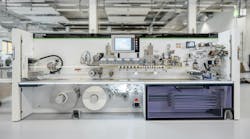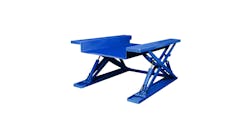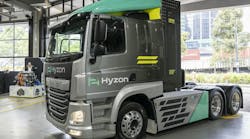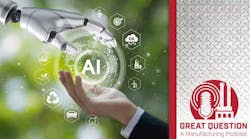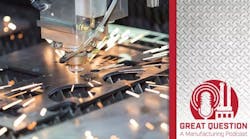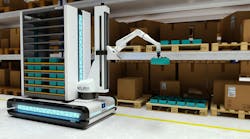Now more than ever, manufacturers are having to respond to increased connectivity and digitization in the industry. Driven by the changing demands of customers, manufacturers must be dynamic and flexible, responding quickly to find solutions that meet customers’ requirements. This industry evolution, more commonly known as Industry 4.0, is completely changing the manufacturing process through the increasing role of robotics at each stage of the supply chain.
Collaboration is key
Contrary to popular belief, the rise in robotics will not make factory workers obsolete. Instead, the use of robots can protect workers from repetitive and dangerous tasks in manufacturing so the human workforce can focus on highly skilled tasks, such as prototyping, quality control, machine maintenance, and program management. The change is coming and it is important for manufacturers to embrace this fundamental industry transition in order to reap the rewards of a forward-thinking hybrid approach. Equally, they must educate and empower their employees, bringing them along on the journey, ensuring that they don’t feel threatened by the impact this could have on the roles of their employees. Ultimately, robots and factory workers can work together and create a hybrid approach to manufacturing. This transition should be viewed as a collaboration, a bringing together of human expertise and technological efficiencies to create an ultimately more efficient and highly skilled workforce.
Change is inevitable
Technological developments are being made at an ever increasing rate and continue to dominate every aspect of society. It was therefore inevitable that digitization would seep into our industry and impact the way products are manufactured. The integration of digitization and data exchange into the manufacturing process has led to the rapid growth of what is known as ‘Smart Factories’. These facilities, which incorporate smart planning, smart machines, and smart data, are reimagining traditional manufacturing processes and around the globe, manufacturers are investing in upgrading their facilities. Change is happening now, and for those manufacturers who want to stay ahead of the competition, they must respond now by implementing a more digitized, automated and streamlined approach to their manufacturing process and supply chain.
Driving efficiencies
The integration of robotics and connected processes mean that manufacturers will be able to collect and analyze data simply and efficiently, which, in turn, will enable them to make more informed decisions on inventory, labor planning, purchasing, and production. According to a report by Accenture, the ‘Industrial Internet of Things’ (IIoT) will add a staggering $14.2 trillion to the global economy by 2030.1 The company also predicts that increased automation will result in machines that can order their own replacement parts or send out automated email alerts to technicians to report future or potential issues, prior to a crisis. This increase in productivity ultimately relies on proactivity. Not only will this save manufacturers time but ultimately money as well, leading to a massive reduction in cost per unit.
While robots will respond efficiently and effectively to prescribed events, the technologically typically cannot handle unexpected situations. This element of unpredictability means there will always be a role for humans to work alongside robots and this transition also provides employers with an opportunity to upskill their workforce. For employees to be on board with this change, employers must empower their employees as ‘change champions’ and look to bring them along on the Industry 4.0 journey.
Above all, manufacturers wanting to compete on a global scale must align with the principles of Industry 4.0 through digitization, automation and data collection. Manufacturers failing to align with these new Industry 4.0 principles risk being left behind. This seamless collaboration between robotics and factory workers will inevitably create a hybrid workforce, enabling manufacturers to continue to evolve and adapt to meet the ever-changing demands of their customers.
For more information about Essentra Components go to http://www.essentracomponents.com/en-gb.
1 Accenture: Winning with the Industrial Internet of Things https://www.accenture.com/us-en/insight-industrial-internet-of-thing
